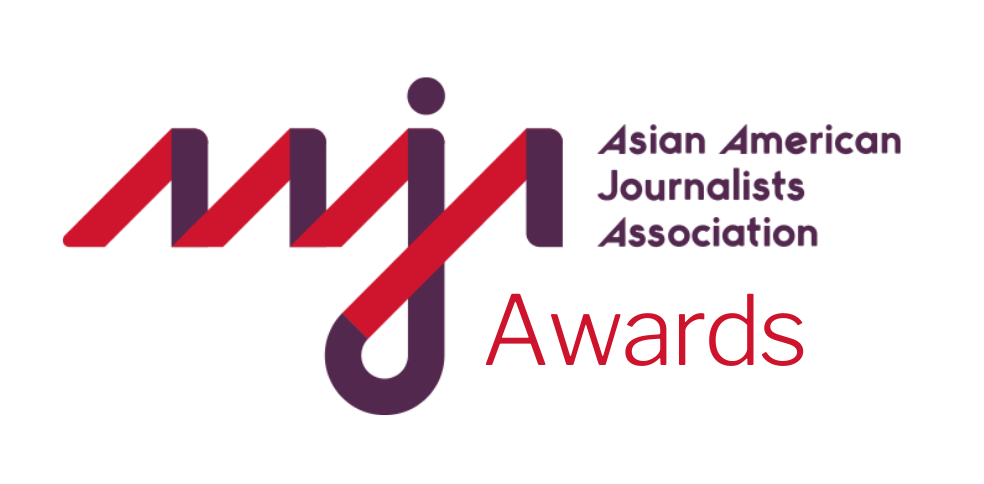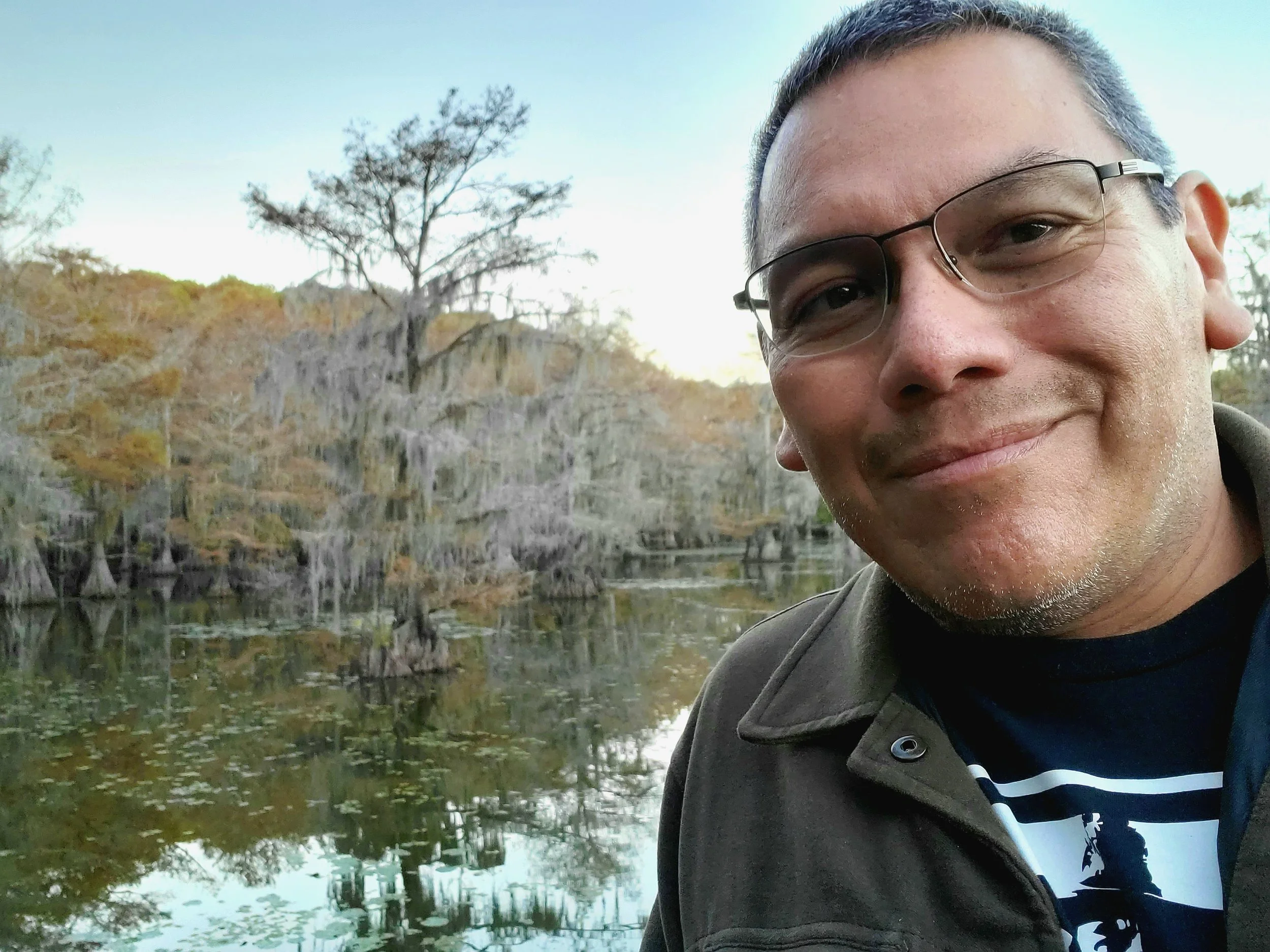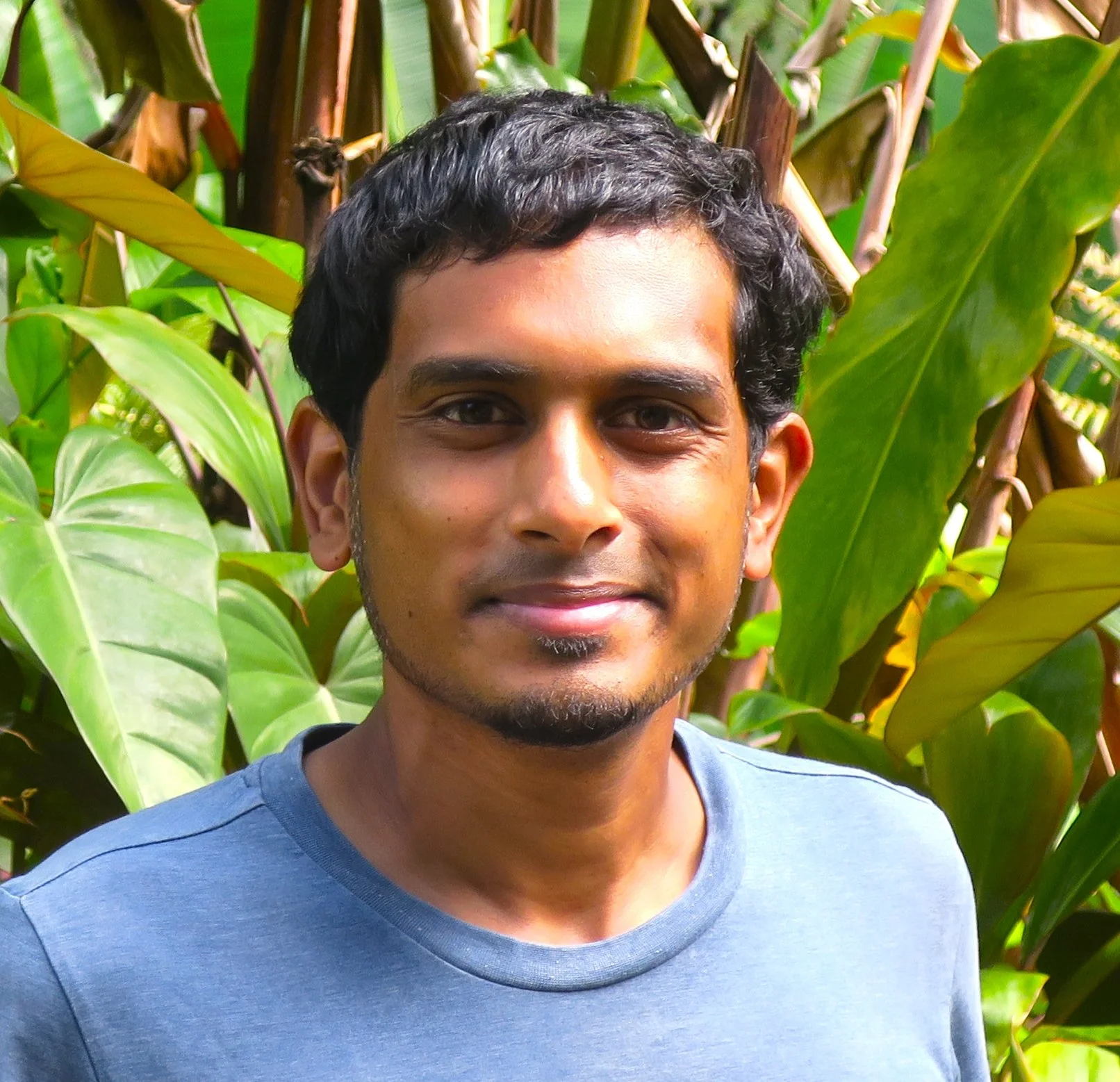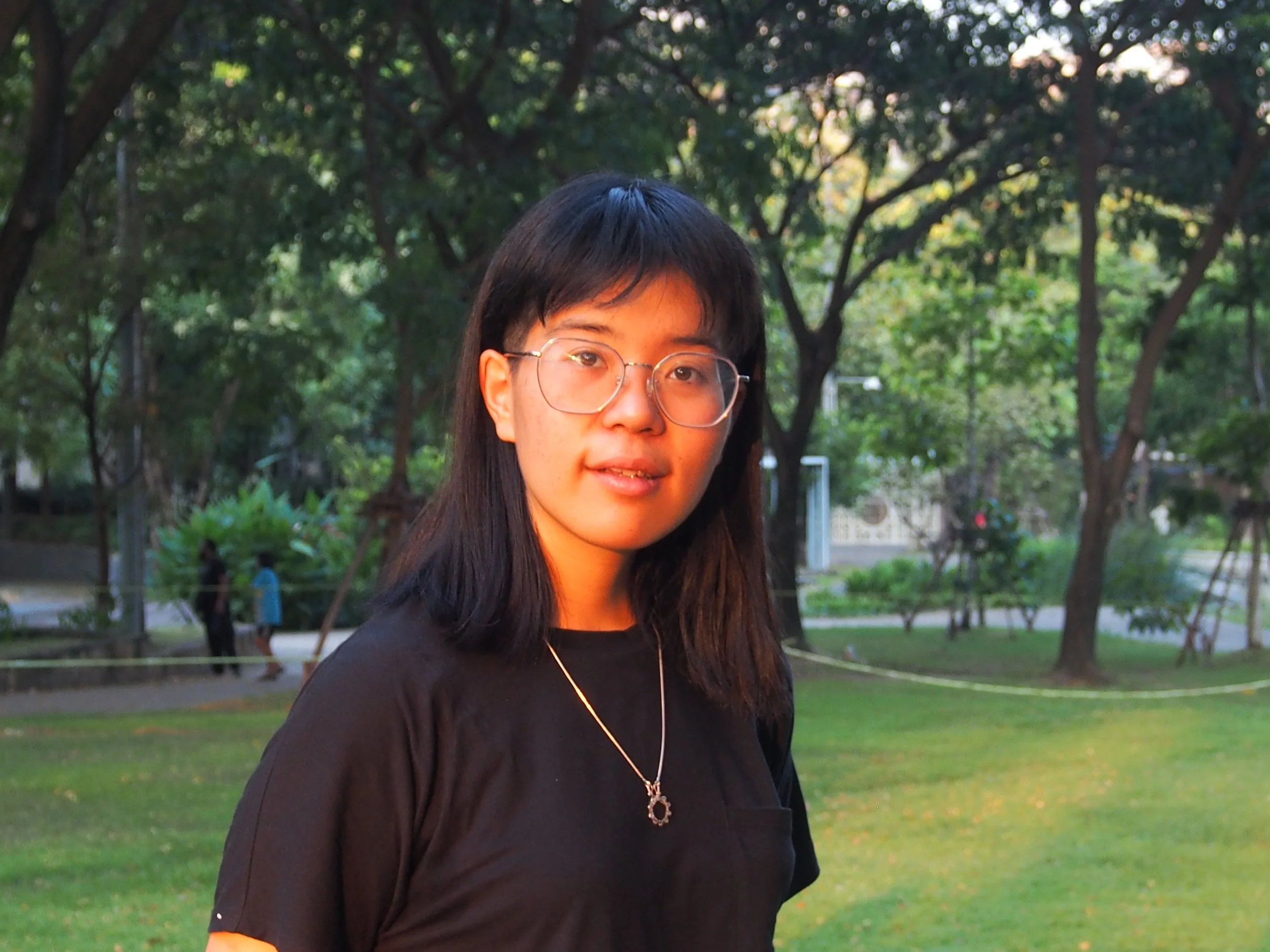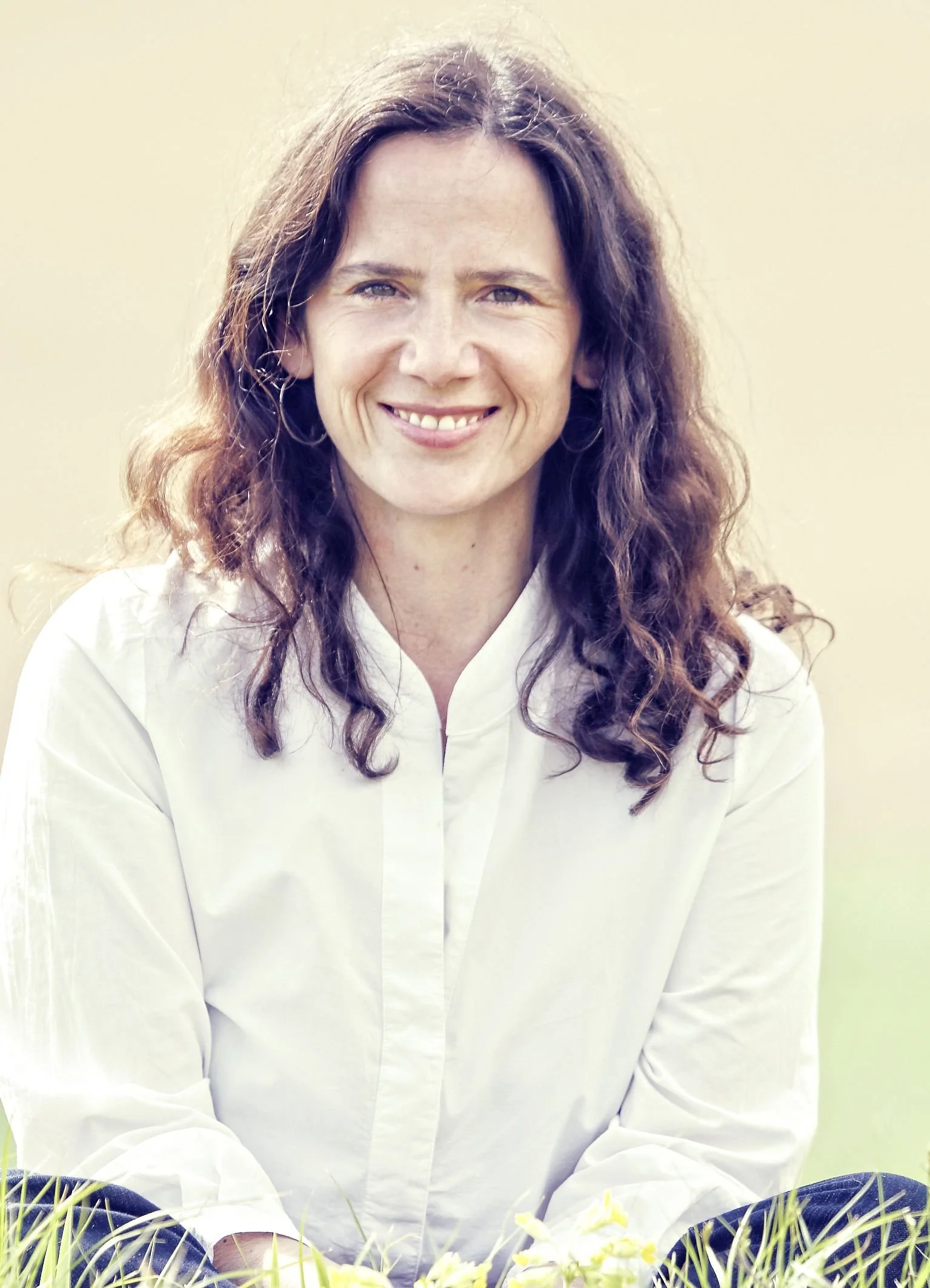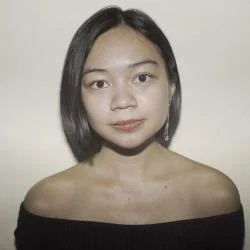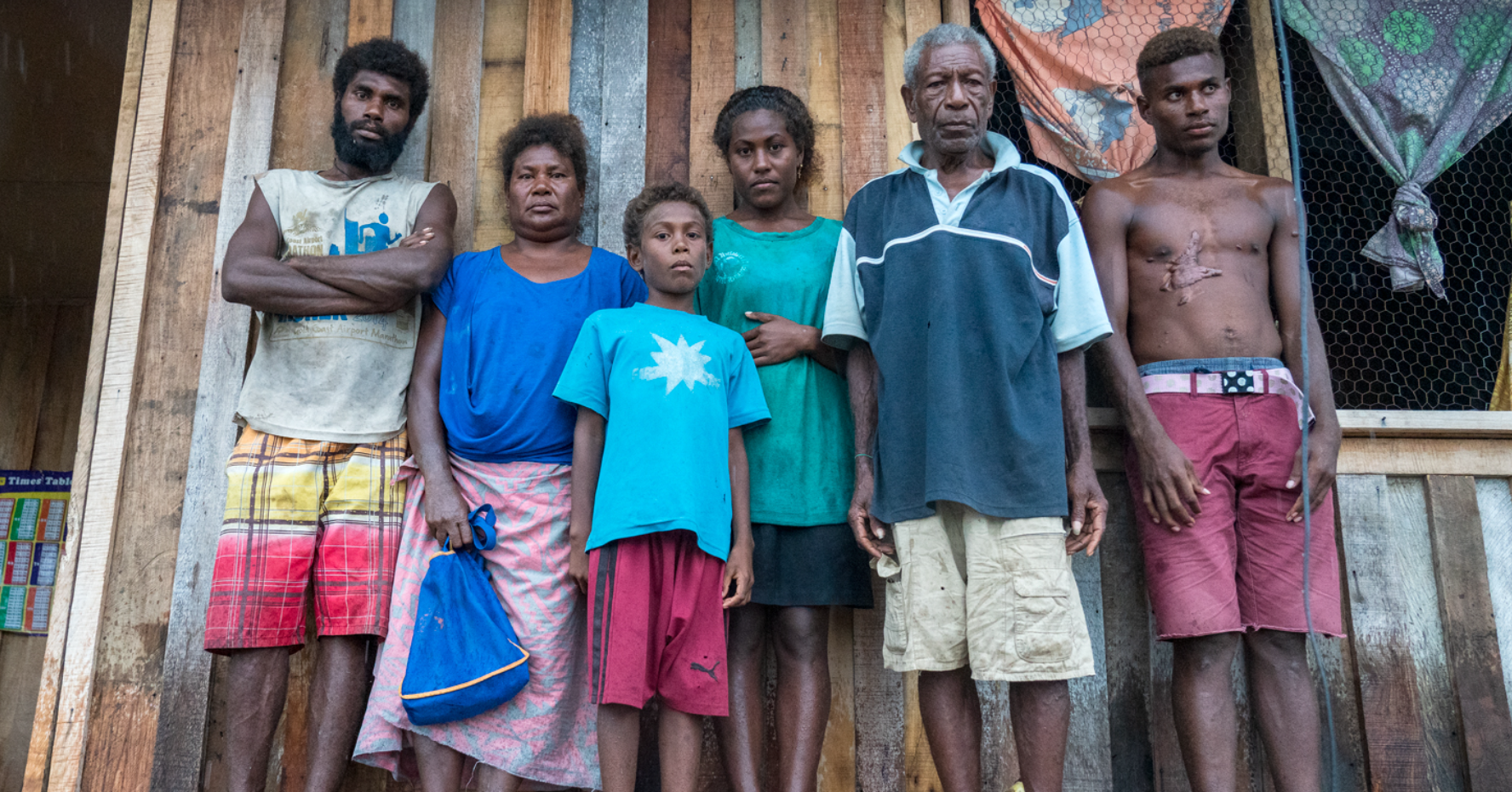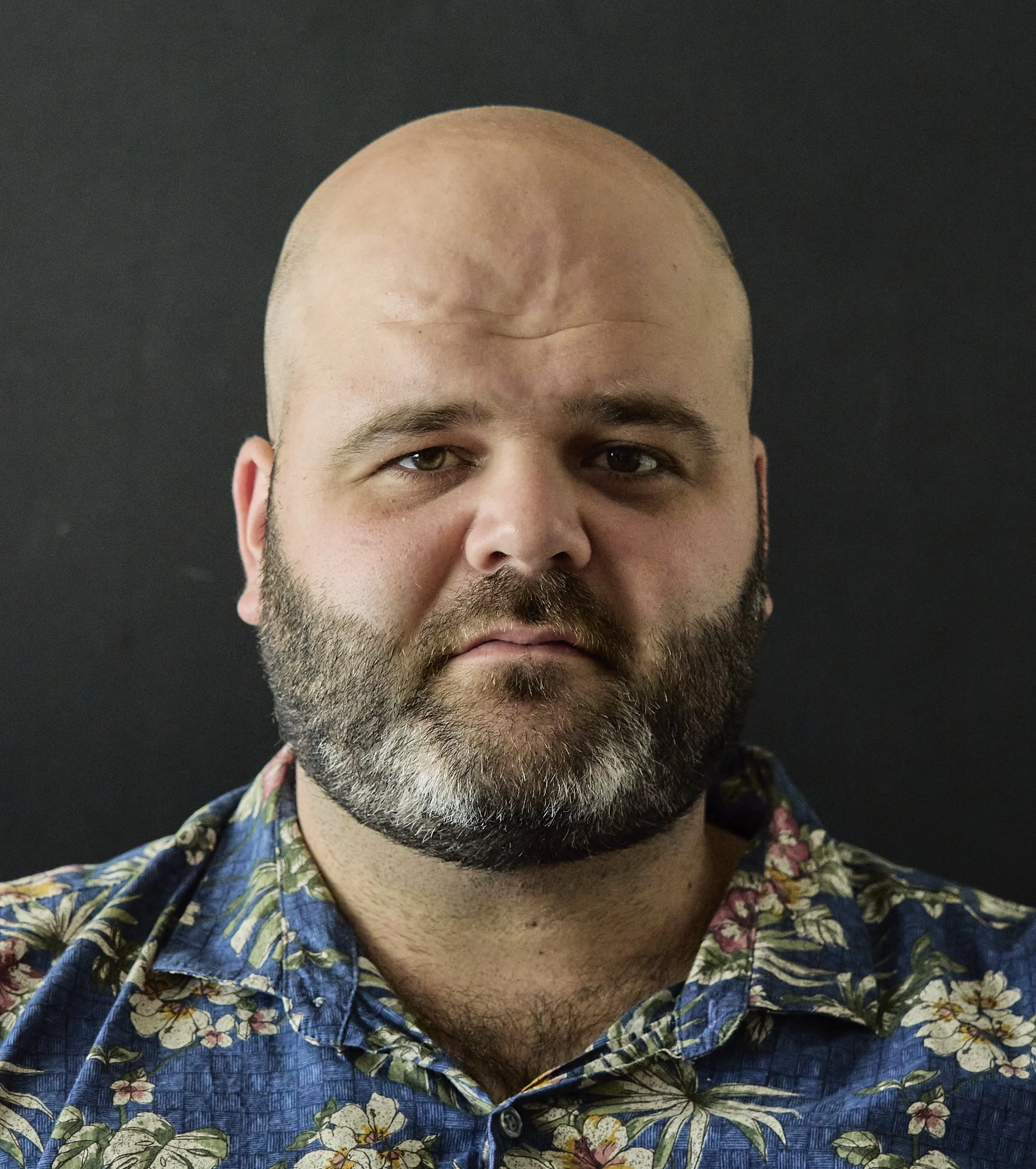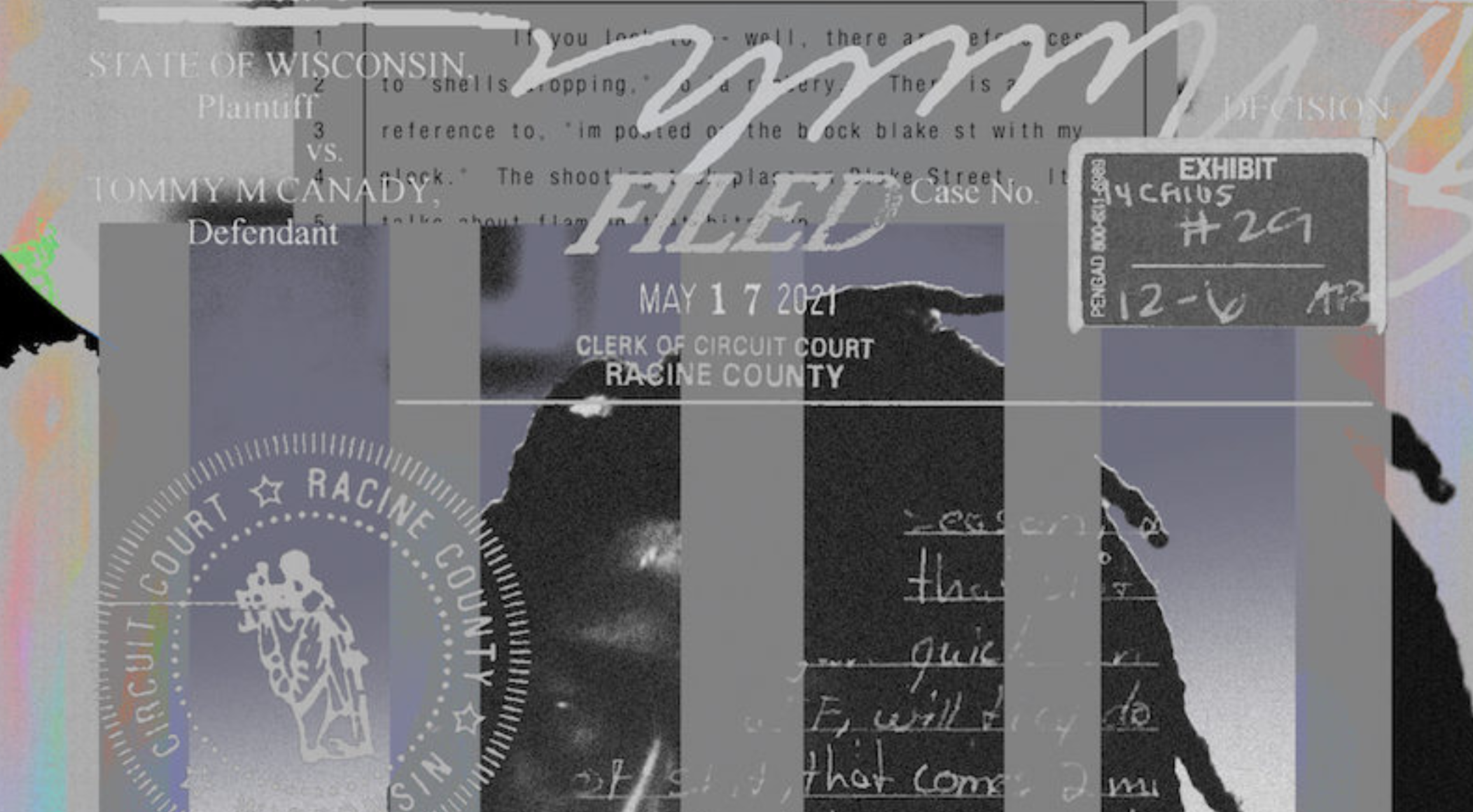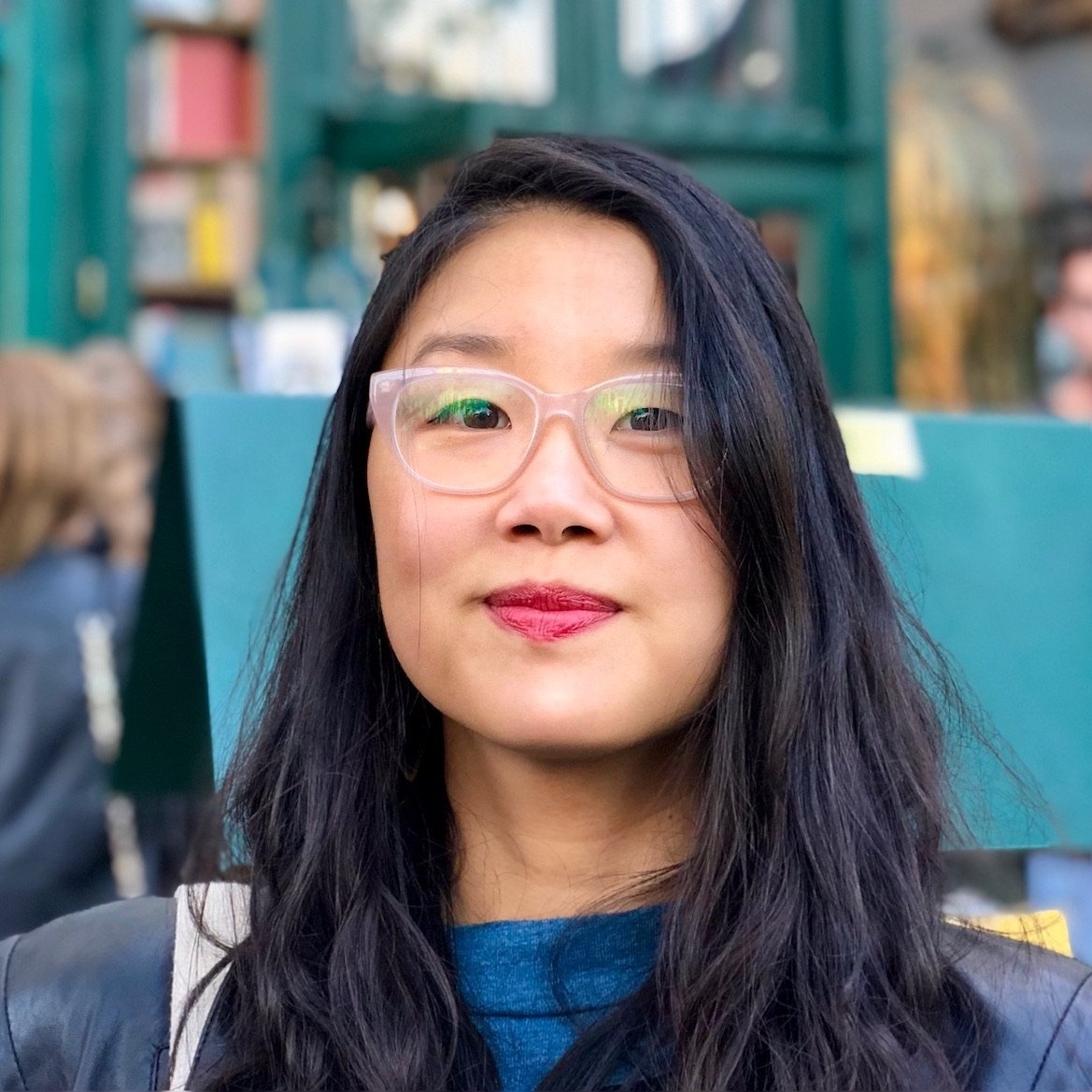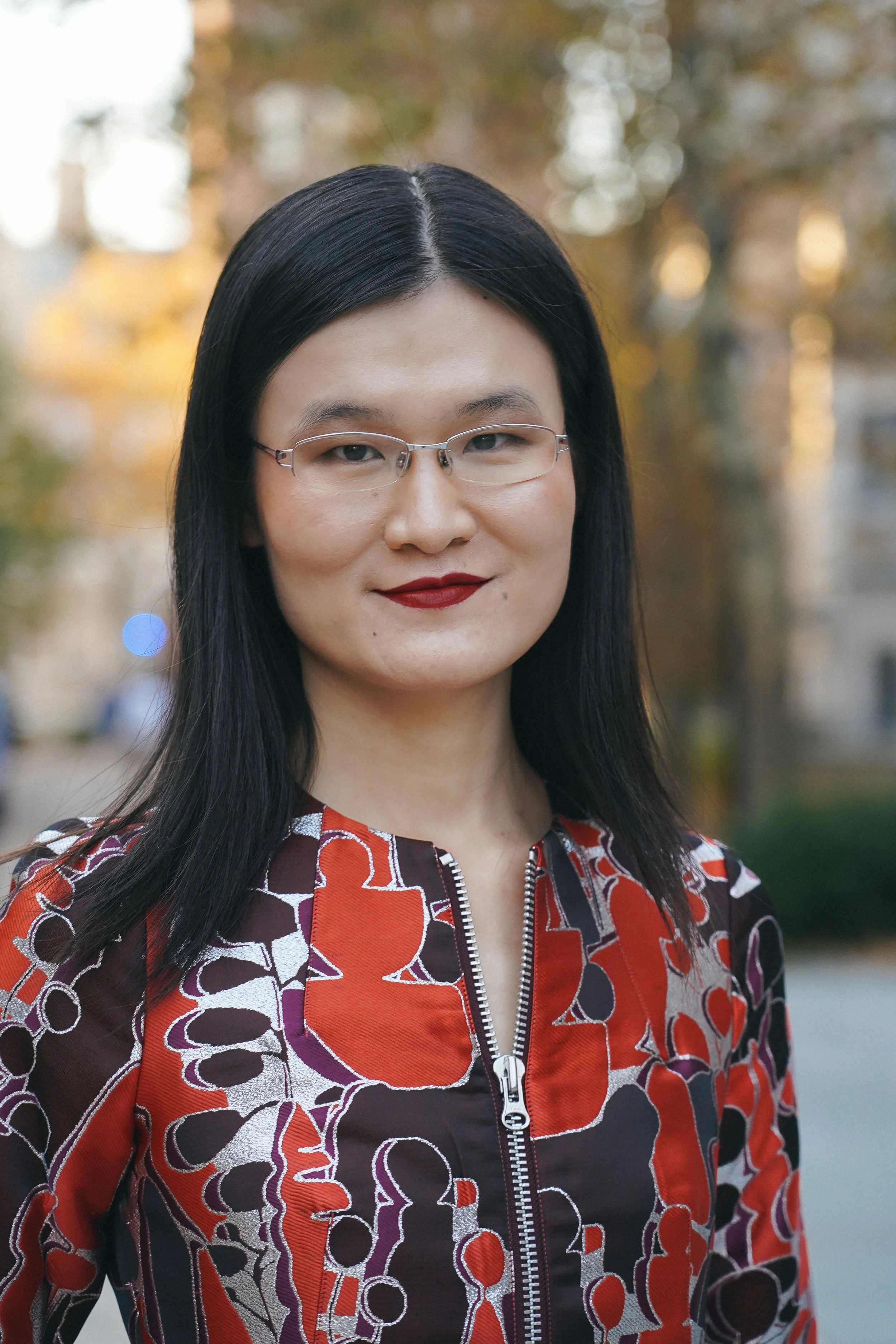Subject Awards 2023
(Works Produced in 2022)
Excellence in Sports Reporting: Allison Torres Burtka
Excellence in Science/Environment/Health Reporting: Kristen Hwang
Excellence in Arts and Culture/Entertainment Reporting: Marc Ramirez
Excellence in Business/Consumer/Tech Reporting: Benjamin Goggin
Excellence in Political Reporting: Amy Yee
Excellence in International Reporting: Nithin Coca, Nicha Wachpanich
Excellence in Pacific Islander Reporting: Thomas Heaton
Excellence in Investigative Reporting: Jaeah Lee
Excellence in Commentary/Op-Ed/Perspective: Yangyang Cheng
Excellence in Sports Reporting - Works Produced in 2022
Allison Torres Burtka, “This team of adaptive athletes finished the Hood to Coast Relay—and is fighting for kids with disabilities,” Outside
ABOUT THE PROJECT: Nicole Ver Kuilen, the woman at the center of the article and the So Kids Can Move campaign, has used the article in conversations with lawmakers in multiple states to advocate for legislation requiring insurers to cover prosthetic devices that kids need to be active. In Oregon, both a state senator and a representative learned of the issue through the article, and Ver Kuilen and other advocates are working with them to introduce legislation. Because of the article, another adaptive athlete approached Ver Kuilen about introducing legislation in New Mexico, which has now passed out of two committees unanimously and is heading to the House floor for a vote. Ver Kuilen says that sharing the article in the orthotics and prosthetics community has resulted in at least six states introducing legislation.
In the running and racing community, the article has caused the Hood to Coast relay to make changes to its course to improve accessibility and inclusion. The race organization shared the article at its Inclusion and Multicultural Engagement Committee meeting, and the race director has become an ally in this movement since the article.
In summary, the article caused the Hood to Coast organizers to make changes to improve accessibility and inclusion, and it made lawmakers in several states aware of the issue. It spurred advocates to introduce legislation in Oregon, which has introduced legislation, and New Mexico, which has passed a law.
Judges’ comments: “Burtka's piece includes a diverse set of voices and above all, has impact. The story showcases the immediate need for insurance companies to cover 'recreational' prostheses -- not just walking prostheses-- for all ages in all states. Burtka also slid in thoughts on ways races overall can be more inclusive, including an accessible bathroom was one suggestion. Above all, the story goes the extra mile in chatting with adaptive athletes of various races and backgrounds and does a good job in driving home the point that physical activity is a basic human right.”
Allison Torres Burtka
(Freelance Writer)
ALLISON TORRES BURTKA is a freelance writer and editor based in metro Detroit. She writes about sports, health and wellness, the outdoors, sustainability, and other topics, often focusing on issues of equity and access for underrepresented people. Her writing has appeared in The Guardian, Audubon Magazine, Outside, Well+Good, espnW, Runner's World, Women's Running, and other national and local Detroit-area publications. Allison also writes for university institutes and edits books for a university press. She is co-lead of the Running Industry Diversity Coalition's media subgroup.
Excellence in Science/Environment/Health Reporting - Works Produced in 2022
Kristen Hwang, “Congenital syphilis rates soar across California as public health funding dwindled prior to the pandemic,” CalMatters
ABOUT THE PROJECT: A mother passing a syphilis infection to an unborn fetus is considered a sentinel event in public health — an event so rare and preventable that it represents something profoundly broken in the health care system. Maternal and congenital syphilis represents one of the most critical failings of the state’s social safety nets.
Yet in 2021, 166 babies in California died from congenital syphilis and thousands more were born with disabilities because of a syphilis infection. In comparison, in 2001 there were three deaths. Decades of defunding public health services has led directly to the closure of free STD clinics in California and shrinking public health departments across the state. And, with the onset of the COVID-19 pandemic, public health departments shifted almost all employees to COVID-19 response teams.
CalMatters health reporter Kristen Hwang spent nearly six months interviewing health care providers, social workers, mobile health teams, researchers, obstetricians and gynecologists. She shadowed Fresno County’s sexually transmitted disease investigators and a street medicine team in Shasta County for months to better understand the intensive and hands-on nature of public health disease prevention work.
Hwang also submitted public records requests to the state health department for sexually transmitted disease data and reports on syphilis programs, and continues to pursue this request because the state has not updated its numbers since 2019. In lieu of data from the state health department, Hwang pulled six decades of congenital syphilis rates from the Centers for Disease Control and Prevention to compare California’s performance against the national average and other states. Lastly, she analyzed 15 years of state spending data on infectious disease prevention, showing steadily decreasing funding until the COVID-19 pandemic occurred.
Nobody wants to talk about sexually transmitted diseases and infections, yet reporting and other public discussions of STDs are crucial to reducing the stigma that surrounds diseases such as syphilis. Still, at every turn, Hwang was told by community health workers, doctors and clinics that they would under no circumstances help her connect with patients. Instead, she attended Alcoholics and Narcotics Anonymous meetings in search of a character with lived experience who could explain how difficult it was to get routine health care and STD testing. She also put up flyers at clinics, visited homeless shelters and contacted foster parent organizations. Only two people were willing to ask mothers if they were willing to talk to Hwang. Only one mother was, and anonymously at that.
Hwang received a fellowship from the University of California’s Annenberg Center for Health Journalism to pursue this reporting. The story was picked up by local outlets across the state, and Hwang talked about the issue on several radio and TV stations to discuss the issue following the series’ publication. The series and Hwang’s “reporting notebook” was published on the Center for Health Journalism’s website and newsletter.
Judges’ comments: “Sexually transmitted diseases are too often a taboo topic, and rates have only worsened during the pandemic as Hwang expertly covers in her reported feature on congenital syphilis rates in California. She takes on the discomfort and sensitivity of the subject with great care and empathy, and captures the heartbreak, uncertainty, and fear in pregnant people’s voices as they hear a positive diagnosis of congenital syphilis—highlighting a growing public health issue in a racially, economically diverse landscape of the Central Valley of California. Hwang not only describes a public health issue, but shows how health is so intimately tied with other problems within the community, such as homelessness and drug use. She seamlessly ties on-the-ground reporting with legislative, policy, and historical medical context — an incredible feat for just one reporter.”
RUNNER UP: Aliya Uteuova, Taylor Moore, “Chicago’s lead water pipe crisis” (1/2), The Guardian US
Kristen Hwang
(Reporter, CalMatters)
KRISTEN HWANG reports on health care and policy for CalMatters. She is passionate about humanizing data-driven stories and examining the intersection of public health and social justice. Prior to joining CalMatters, Kristen earned a master’s degree in journalism and a master’s degree in public health from UC Berkeley, where she researched water quality in the Central Valley. She has previously worked as a beat reporter for The Desert Sun and a stringer for the New York Times California COVID-19 team.
Excellence in Arts and Culture/Entertainment Reporting - Works Produced in 2022
Marc Ramirez, “Is the swastika a symbol of hate or peaceful icon? Faith groups try to save reviled emblem,” USA Today
ABOUT THE PROJECT: I don't know whether the story had any far-reaching impact -- the California bill in question remains stalled -- but for me this response from Hindu reader Kaushik Saha offered much fulfillment: “I cannot thank you enough, as a US citizen and a humble Hindu, for the courage and conviction you have shown in writing this fair and balanced article that actually speaks the plain truth. For us Hindus, this news-story in USA Today represents a watershed (we-finally-made-it) moment for a community that does its best to uplift communities and societies around it and yet has been systemically attacked and marginalized by vested and well funded interests (often foreign-sourced) among other faiths."
Judges’ comments: “Marc clearly did a lot of reporting and talked to a lot of different voices. He also provided a panoramic view of ideas relating to this issue, and in the end, we felt very informed about this topic. We felt that this piece brought awareness to an important religious and cultural symbol and its complicated place in history.”
RUNNER UP: Jyoti Yadav, “New technology, old hierarchies: The story of centuries old caste war in India” (1/2/3), ThePrint
Marc Ramirez
(National correspondent, USA Today)
MARC RAMIREZ is a national correspondent for USA Today, where he covers issues of social justice and identity. He previously worked at The Seattle Times, Phoenix New Times and The Dallas Morning News.
Excellence in Business/Consumer/Tech Reporting - Works Produced in 2022
Benjamin Goggin, “Wickr, Amazon’s encrypted chat app, has a child sex abuse problem — and little is being done to stop it,” NBC News
ABOUT THE PROJECT: After the publication of this story, Amazon Web Services announced that it was ending Wickr Me, which is now being phased out. Wickr has had some other controversies, but Amazon Web Services was seemingly unaware of the app's child exploitation problem until the publication of my article.
Judges’ comments: “Judges felt the writing and reporter were strong but what put it over the top was the impact the story had. Amazon Web Services shut down Wickr after this report. Excellent use of data from court documents and the National Center for Missing & Exploited Children. Goggin, backed by Shehan from NCMEC, calls out AWS throughout the story and holds them accountable. The quotes from Shehan and AWS back-to-back was a solid choice as it shows the variance in viewpoints. Good job including background such as the fact that Wickr doesn't require users to input personal information when signing up compared with counterparts that do. Those small details matter. Overall a very impactful story brought to light using data, sources and what one can only assume was hours and hours of digging through and reading court documents.”
RUNNER UP: Eileen Guo, “A Roomba recorded a woman on the toilet. How did screenshots end up on Facebook?,” MIT Technology Review
Benjamin Goggin
(Deputy Tech Editor, NBC News)
BEN GOGGIN is the deputy editor for technology at NBC News Digital, where he edits and conducts online investigations into social media platforms, internet culture, extremism, and other topics at the intersection of culture, technology, and power. Previously, Ben was the founding editor of Insider’s digital culture vertical, which investigated the influencer industry and its celebrities.
Excellence in Political Reporting - Works Produced in 2022
Amy Yee, “How to Reach New Asian American Voters? Local Groups and Languages,” Bloomberg CityLab
ABOUT THE PROJECT: My article from Philadelphia about US midterm elections in 2022 showed how Asian Americans are moving from the margins to becoming voters who can be the margin of victory. That is happening in key swing states like Pennsylvania, as well as in Georgia, Asian American voters helped Joe Biden win the US presidency in 2020.
Importantly, I showed how Asian Americans are being activated to play pivotal roles in US elections. In November 2022, I reported extensively from the ground on election day in immigrant and minority neighborhoods in south Philadelphia. In 2022, the city was required for the first time to offer Chinese language voting information under the federal Voting Rights Act. Philadelphia’s Chinese-speaking electorate had grown and surpassed a threshold that made the city qualify for bilingual Chinese voting information. This trend reflects changing demographics in many US cities and counties as communities shift.
I made a point of speaking to new voters with limited English because these are people who are too often neglected or ignored. By shadowing trusted community organizers, I reached marginalized lower-income Asian Americans who tend to be leery of speaking publicly and to the media.
This story came about unexpectedly and spontaneously within days but my thorough reporting covered a lot of ground and included many diverse voices.
I detailed how grassroots groups turn out diverse Asian American voters through language, cultural connections and trust through years of helping people through food aid, healthcare, education and other services.
Judges’ comments: “It is evident that Amy Yee built trust within marginalized lower-income Asian American communities with limited English skills who are seldom highlighted in the press. She expertly wove in their stories to display how Asian Americans are being activated to vote.”
RUNNER UP: Jeong Park, Dakota Smith, “Coverage of the 2022 elections” (1/2/3), Los Angeles Times
Amy Yee
(Reporter/Journalist, Bloomberg CityLab)
AMY YEE is an award-winning journalist for Bloomberg CityLab and former Financial Times staff reporter and correspondent in India where she lived for seven years. Amy has won the UN Correspondents Association award three times; South Asian Journalists Association award four times; and first place in the Association of Healthcare Journalists contest for reporting about reducing deaths of children in India and Bangladesh. She has four Notable Essays in the Best American Essays. Amy was a Knight-Bagehot Fellow in Economics and Business Journalism at Columbia University and has an MPA from Harvard Kennedy School, MFA from Hunter College and BA from Wellesley College.
Excellence in International Reporting - Works Produced in 2022
Nithin Coca, Nicha Wachpanich, Alexandra Buba and Geela Garcia, for articles on the politics of waste-energy technology in
Energy Monitor, Mongabay, Unfiltered
ABOUT THE PROJECT: It was back in 2021 that I noticed that there were waste to energy projects - modern facilities that burn trash, mainly plastic, to produce electricity, being proposed across Southeast Asia. Nearly all were using European or Japanese technology, but there was little to no reporting on this, except in local media. There wasn't even a list of all the projects in the region.
I found other journalists who had covered this issue and we decided to embark on a cross-border collaboration to report this, publishing stories in six languages (English, Japanese, Indonesia, French, Spanish - and, soon, Thai). The response we have gotten has been overwhelmingly positive. In Japan, Thailand, the Philippines, and Indonesia, locals we spoke too were deeply curious to learn that others across the region were facing the same types of projects they were. We connected labor unions in Indonesia and Japan, and have also have shared our data with local and regional non-profits, who may use it in their work as well. Even the companies were curious - one, Hitachi Zosen, the leading provider of this technology, told us they would change their practices based on some of our findings.
We hope that our reporting will also lead to other journalists taking on similar stories - and in fact, since we published our series, we've been contacted by local reporters in Vietnam and Malaysia, two countries with several waste to energy projects but not part of our reporting.
Judges’ comments: “As a freelancer, it's terribly hard to pursue a project of this stature, but the team collaboratively achieved the impossible. The team covers an important topic related to the Waste to Energy push and has created a great impact on several communities in South east Asia by covering this topic. They covered all aspects of the issue and included underreported sources and communities. Their coverage of the issue in Japanese also showcases a deep respect for the communities which they are reporting on. This submission is inclusive and diverse and is a true example of an excellent international reporting project.”
RUNNER UP: Michelle Ye Hee Lee and Grace Moon, “Crucial lapses led to tragically delayed rescue in a Seoul alley,” The Washington Post
Nithin Coca
(Journalist, freelance)
NITHIN COCA is an Asia-focused freelance journalist who covers climate, environment, and supply chains across the region.
He has been awarded fellowships from the Solutions Journalism Network, The Pulitzer Center, and the International Center for Journalists, and his features have appeared in outlets in North America, Asia, and Europe, including Financial Times, Mongabay, Ensia, Yale E360, China Dialogue, The Nation and Engadget.
Nicha Wachpanich
(Journalist, HaRD Stories)
NICHA WACHPANICH is a Thai journalist based in Bangkok. She covers environmental justice, feminism and labour rights from rights-based and human-interest perspectives. She previously worked with a local news agency representing the Thai Society of Environmental Journalists and has been covering wide ranges of environmental issues from plastic pollution to climate crisis. She has worked on cross-border investigations including the expanding waste-to-energy projects in Southeast Asia and the Burmese migration after the recent political crackdown. Believing in the power of oral histories, she regularly writes features about human rights defenders. See her portfolio and connect with her here.
Alexandra Buba
(Reporter, medientext)
ALEXANDRA BUBA is an experienced German economy journalist with academic education. She covers topics connecting technology and economics, new business models, crossborder projects and sustainability for professional magazines. She also is a book author and speaks six languages.
Geela Garcia
(Multimedia journalist, freelance)
GEELA GARCIA’s photographic work, which documents stories of women, food sovereignty, and the environment, aims to write history from the experience of its makers. Her writing and photography appear on the Thomson Reuters Foundation, South China Morning Post, and Philstar among others.
Garcia was among the Top 10 finalists of the Asia Centre 2021-2022 Equitable Asia Award. She is a recipient of reporting grants from the Earth Journalism Network, Climate Tracker, Oxfam Philippines, and Friedrich Naumann Foundation for Freedom among others.
Excellence in Pacific Islander Reporting - Works Produced in 2022
ABOUT THE PROJECT: “UXO: Lethal Legacy” is the first comprehensive explanation of what the Solomon Islands’ situation is, in regard to unexploded ordnance. The four-piece series was shared widely in the non-governmental aid sector, disseminated through academic circles and republished by the Island Sun, in the Solomon Islands, and USA Today.
In reaction, Heaton’s work has been the subject of lectures at Nagoya University in Japan and Leeward Community College, in Hawaii, and has been the subject of news segments on Hawaii News Now and Hawai’i Public Radio. The work has also been referenced by the Australian Broadcasting Company. The project was identified by the Pulitzer Center on Global Crisis Reporting’s list of its top stories for 2022.
Each story attracted more than 10,000 viewers who viewed each story four times, on average, which was both high and indicated an ongoing interest in the topic. In subsequent coverage, Heaton’s piece, “‘Ticking Ecological Time Bombs’: Thousands Of Sunken Ships From WWII Are Rusting At The Bottom Of The Pacific,” received just under 60,000 pageviews alone – an exceptionally successful story for Civil Beat.
Likewise, there was an outpouring of support from readers who wanted to help the victims and the victims' families. A professor from the University of Hawaii is currently trying to find a way to get money directly to the victims of UXO, to help pay for the education and healthcare of the children of affected families.
Judges’ comments: “It was clear from reading the series that Thomas put a lot of work into reporting and getting to know the community. He brought up an important issue and helped the story come alive, not just through text, but also by adding photographic elements, mapping, and even multimedia elements.”
RUNNER UP: Tiare Tuuhia, “Online shopping in the middle of the ocean,” Rest of the World
Thomas Heaton
(Reporter, Honolulu Civil Beat)
With eight years experience, THOMAS HEATON made his start in journalism working for a regional daily newspaper in Aotearoa, New Zealand, where he covered social issues, health, local politics and general news. He has since worked for national outlets in New Zealand and Nepal, with a focus on the food system, and completed postgraduate studies at Columbia University’s Graduate School of Journalism. Now working for Honolulu Civil Beat, his reporting is focused on Pacific regional issues, agriculture and food systems.
Excellence in Investigative Reporting - Works Produced in 2022
Jaeah Lee, “This Rap Song Helped Sentence a 17-Year-Old to Prison for Life,”
Type Investigations/The New York Times
ABOUT THE PROJECT: The investigation helped advance a national conversation around the use of rap lyrics in criminal trials and the role of racial bias in evidence rules more broadly. In the days after it was published, it received high engagement on social media, with 500+ retweets and shares, and 1000+ likes on Twitter, including dozens of defense attorneys, prosecutors, authors, and law professors who shared the article and their intent to teach/discuss it with students. Color of Change, an advocacy group, reached out with interest in expanding the database project. Multiple film production companies (including Ron Howard's Imagine Docs) also reached out. The Marshall Project featured the story as its "pick of the week." Two months after the story ran, the New York Senate passed a bill that limits the use of rap lyrics at trial, and in September 2022, the California state assembly passed a similar bill limiting the use of lyrics. Legislators in Maryland and the U.S. Congress have proposed similar bills.
Judges’ comments: “The storytelling is compelling and thoughtful. It makes you care, even if you're not familiar with this phenomenon. It was truly in-depth reporting and the multiple tools used in the reporting were on display. And beyond that, it lit a fire across the country from New York to California, engaging people to act upon and share about what they had read.”
RUNNER-UP: Jyoti Yadav, “Women in District Courts” (1/2/3), The Print
Jaeah Lee
(Reporter)
JAEAH LEE is an independent journalist and a contributing writer at The New York Times Magazine. In 2018 she was awarded the American Mosaic Journalism Prize for excellence in longform, narrative, or deep reporting on underrepresented groups in the American landscape. “After the Shooting,” a story she wrote about a mother whose son was killed by police, won the 2018 PEN America Los Angeles Literary Award for Journalism. In 2019 she was awarded the Debra E. Bernhardt Labor Journalism Prize for her piece about the declining livelihood of Disneyland’s workers. She was a 2021-2022 Knight-Wallace Reporting Fellow.
Excellence in Commentary/Op-Ed/Perspective - Works Produced in 2022
Yangyang Cheng, “The US Fixation on Chinese Espionage Is Bad for Science,” Wired
ABOUT THE PROJECT: The beginning of 2022 was a particularly consequential time for Chinese scientists in the US and scientific exchange between the two countries. The Justice Department officially ended the controversial “China Initiative.” The federal government issued new guidelines on research collaboration and disclosure. Of the much ink spilled over these developments, few commentary questioned the underlying framework of national competition and knowledge ownership. Rightful critique of misguided policies were nevertheless limited by its narrow focus and lack of vocabulary. Words like “theft,” “openness,” and “best and brightest” were used without examining their meanings or the worldviews they help perpetuate.
This essay is unique in its scope and approach by interrogating the foundations and taking nothing for granted: Instead of accepting the world as it is and offering superficial suggestions, it moves beyond the confines of the state and goes back in time to trace the genesis of certain concepts such as state support for science and proprietary research, and maps their evolution alongside socio-economic and political shifts. Instead of essentializing science as a universal good or the objective truth, the article elucidates the social, political, and human dimensions of scientific development and the ethical challenges they raise.
The author, a Chinese-born, US-based immigrant physicist with over a decade of experience in large international collaborations, who now works as a legal scholar and historian of science, brings singular expertise to this complex subject. With academic rigor and an interdisciplinary approach, the intellectual ambition of this essay is realized through an intimate, personal lens. The author weaves her own journey across borders and political systems into the analysis to illuminate the human cost obscured by the abstract language of the state. The essay opens with a piercing question, “HAD I BEEN born a decade later, would I still have aspired to come to the United States to be a scientist?”
Since publication, the piece has been widely read and shared across the globe by academics, scientists and technology workers, members of the Chinese diaspora and the Asian American community, and other engaged groups and individuals. It has been recommended, among many others, by the Asian Pacific American (APA) Justice organization, by journalist Karin Fischer in her newsletter for The Chronicle of Higher Education, and by computer scientist Timnit Gebru, former co-lead of Google’s Ethical AI team and founder of the Distributed AI Research Institute (DAIR), who tweeted that “I highly recommend this piece” and “(i)t hit so many important points and I learned a lot.” Part of the essay has been translated into Chinese and covered by various Chinese media outlets. At the 30th Anniversary Conference of the founding of the International Society for the Study of Chinese Overseas (ISSCO), held by UC Berkeley in the fall of 2022, the author met with several Chinese-American scientists and scholars who have been impacted by unjust prosecutions or have been active in organizing resistance, all of whom had read the piece and commended its distinct value and broad impact.
RUNNER UP: Naomi Ishisaka, “A1 Revisited: The Seattle Times’ coverage of the 1942 removal of 227 Bainbridge residents left a harmful legacy," The Seattle Times; Companion Column: “Reporting a story about WWII incarceration, I learned about my own family’s hidden history,” The Seattle Times
Judges’ comments: “From the reporting to the narrative, this piece is simply outstanding. The author masterfully weaves her own story as a Chinese-born, U.S.-based physicist with a timely policy issue, crafting a thought-provoking perspective with seemingly such ease and breadth. What emerges is a strong analysis of U.S.-Chinese relations using ethics, science and history.”
Yangyang Cheng
(Research scholar, Freelance)
YANGYANG CHENG is a research scholar in Law and Fellow at Yale Law School’s Paul Tsai China Center, where her work focuses on the development of science and technology in China and US‒China relations. Born and raised in China and trained as a particle physicist, she has written for The New York Times, The Guardian, The Atlantic, The New Statesman, WIRED, VICE, MIT Technology Review, Los Angeles Review of Books, and many other publications. Before joining Yale, she worked on the Large Hadron Collider for over a decade, most recently at Cornell University and Fermi National Accelerator Laboratory.
